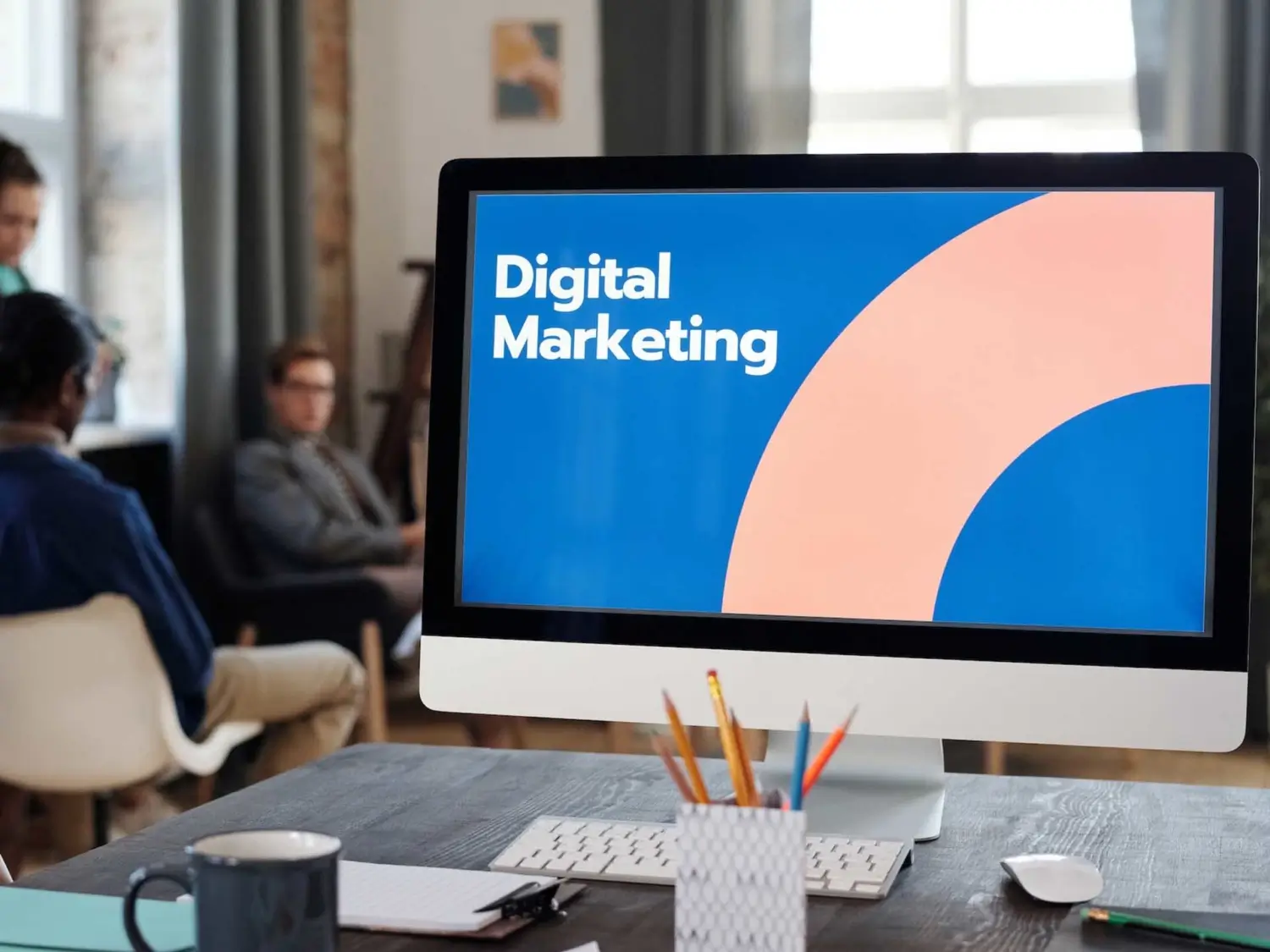Originally published January 7, 2023 , updated on February 16, 2026
Standing out in the tumultuous waters of content marketing is a feat that many brands struggle to achieve. Without a unique voice, these generic materials disappear into the content abyss. Being successful implies that companies must seek to create more meaningful connections with their targeted customers by personalising their content. This could mean tailoring messaging to specific consumer profiles or adapting formats and styles based on consumer feedback. Capitalising on personalisation’s power will improve your chances for success by creating engaging and purposeful dialogues with your intended audience.
According to a recent survey, giving customers what they want has proven beneficial, as up to 91% of consumers are more likely to shop with personalisation-friendly businesses. On the contrary, not serving shoppers with tailored content can be detrimental, as 74% of online buyers feel let down when websites don’t address their needs.
Companies should take note of the power of personalised content and emphasise targeting customers through relevant offers and suggestions. This way, they’ll keep customers satisfied and generate higher demand for their products or services.

The concept of personalisation extends from customer service to e-commerce sales. It’s essentially the idea of tailoring a website’s content so that it speaks directly to each individual consumer and, as such, is used for a better understanding of their needs and how to meet them more effectively and efficiently.
This kind of one-to-one marketing expedites interactions, resulting in greater customer satisfaction. Personalisation has become an increasingly popular way of engaging with consumers. It creates a more tailored experience that leaves customers feeling appreciated and catered to.
What Is Personalised Content?
Personalised content is created to be of relevance to an individual. A common misconception is that personalised content only applies to the digital sphere, such as targeted advertising and emails tailored to one person. However, its application covers a much wider range, including physical products and services that can be made specific to someone’s needs; for example, a tailored health plan or entertainment package or a targeted and solution-driven article.
Creating personalised content often requires feedback from the user to specifically craft it around their wants and preferences. This provides opportunities for companies to deliver deeper insights into what their customers value and need. It leads to a more positive customer experience overall.
Personalised content can be a powerful tool for any brand looking to create a more meaningful connection with potential customers. By leveraging this data about individual customers, you will have the ability to tailor your messaging and deliver experiences that are specific to each person.
For example, you may be able to deliver dynamic content based on gender, age, location, or interests – all of which will help make your content more relevant and engaging to the individual consumer. Ultimately, it’s just another way to stand out from your competition by providing a truly unique experience between the consumer and your brand.

Personalised Content Today
Content personalisation has made the customer experience much more tailored to an individual’s interests and needs. Companies like Amazon have developed the ability to accurately guess their customers’ likes and dislikes through sophisticated algorithms combined with customer data tracking.
This “smarter” version of customer service evokes memories of a time before technology when clerks within stores knew customers by name and were able to pick out items they thought they might like. Of course, instead of a warm human face, it is a computer-generated page. It’s equipped with your name that greets you on your next visit to Amazon providing products it thinks you will be interested in.
All in all, content personalisation takes the guesswork out of shopping and provides a great benefit to both retailers and customers alike.
The Top Four Types of Personalised Content
1. Surveys and Quizzes
Surveys and quizzes are incredibly useful tools for businesses of all sizes; they allow people to interact directly with the content they’re presented while creating a fun atmosphere that drives leads and engagement. Allowing consumers to personalise the content according to their interests helps them feel connected. They will be more likely to stay involved in the conversation for longer.
Businesses can use this tool by creating custom quizzes specific to their target audience’s interests. It targets certain demographics and particular individuals as well. This is especially beneficial for smaller businesses that may not have access to larger marketing budgets or resources.
2. Targeted Adverts
Social media provides a powerful and cost-effective way to deliver personalised content to your audience. By creating posts on your profile page, you can boost them to target certain audiences based on characteristics such as age, gender, location, and interests. This makes it easier to create content that resonates with a diverse range of viewers. It will help you reach and engage larger numbers of followers.
With this ability to customise messages quickly and accurately, social media platforms are excellent resources for effectively promoting your message.
3. Location
Trackable map apps have revolutionised how people can target prospects based on location. By allowing users to find establishments near them that match their interests (such as vegan restaurants, hikes, or petrol prices), they are much more likely to take action due to the personalised nature of the options presented.
Traditional locale-based marketing has been improved by trackable map apps. It provides a great way for local and global businesses to reach potential customers with relevant offerings.
4. Emails and Newsletters

Email marketing is one of the most effective ways to reach target customers. When done correctly, it can propel your business forward, generating more website visits and conversions. Segmenting your email list further improves the effectiveness of the process. It also allows for personalised messages tailored to specific subscribers’ interests, needs, and behaviours.
With segmentation, you can create campaigns that deliver content to specific audiences, giving them information relevant to their activities or desires. This highly targeted commentary encourages personalised engagement with your brand and helps move consumers down the conversion funnel. It’s worth investing effort into segmenting your email list for improved marketing results.
The Benefits of Personalised Content for Business Growth
Despite the proven impact of using social graph data to personalise the online experience, a surprisingly low 6% of marketers are taking advantage of this tactic, according to recent statistics. This could be due to insufficient strategy and infrastructure for using social graph data or a lack of knowledge. Whatever the reason, 88% believe utilising these techniques can have an immense advantage on their return on investment (ROI) and engagement. If you’re not already leveraging social graph data, now may be the perfect time to invest.
Below are four top benefits of personalised content:
Boosts Conversion Rates
Tailoring a message to the reader is key when attempting to capture their attention and engender loyalty. Generic messages simply lack the resonance of ones crafted and aimed specifically at the intended audience. Personalising your message enables it to stand out; readers are more likely to pay attention and remember what you’re trying to communicate. It leads to an increased chance of a conversion.
Crafting customised yet succinct messaging can help grab the reader’s attention in an age where there is so much competition for it. Put another way, generic messaging is, in all likelihood, doomed not to inspire action. In contrast, one which has been lovingly crafted with a particular audience in mind has far greater potential.
Speeds Up the Sales Funnel Process
Every business strives to increase its conversion rate, and the key to this is simplifying and clarifying the process. When prospects or customers see a concise, straightforward explanation of what they need to do, it inspires confidence. Ultimately, it increases the likelihood that they will take the desired action.
Whether your goal is to get people to purchase a product, download an ebook, or sign up for a webinar, you can increase conversions by delivering an unambiguous call to action. A streamlined process makes things fast and easy for your prospects, encouraging more people to grasp the opportunity presented to them. Take steps today towards improving your conversion rate by creating a clear path for your customers.
Rather than providing the same information every single time, customers can have peace of mind knowing that you save their data and preferences whenever they engage with you. This can help create smoother user experiences while giving them a feeling of relevance and recognition as a consumer of your business. On top of this, it also saves valuable time for all parties involved – leaving more time to focus on interactions that move further up the funnel towards conversion.
Builds a Loyal Customer Base
Personalised experiences across all digital channels, such as websites, email, social media, and advertisements, give customers a reason to keep coming back for more. By making the customer feel special and giving them insights into products they are interested in, companies can create lasting relationships with their customers. They can also build a loyal base of fans who will remain engaged throughout their journey with the business.
Increases the Rate of Qualified Leads
Lead nurturing is a critical step for businesses seeking to generate higher-quality leads. By understanding the wants and needs of their potential customers through content, companies can create campaigns that specifically target an individual’s interests and behaviour. Studies have shown that personalising digital experiences improves customer engagement dramatically, leading to more marketing-qualified leads.
Additionally, progressive technology has made it even easier to take a data-driven approach to create personalised campaigns. It happens by leveraging data from sources such as emailers, web visits, and mobile apps. This kind of personalisation ensures companies are maximising their efforts in lead generation and optimisation efforts to ensure their marketing investments yield the best outcomes.
Refreshes Your Website

Personalisation is key to keeping visitors engaged. When visitors return to your website, you’ll present them with offers tailored to their interests. Visitors will appreciate this personalised touch as it shows you’re taking your preferences into account. You won’t be too excited by the same offer being repeated every time. Dynamic content keeps them interested in what you have to offer and can increase engagement rates.
Why Content Writing Services Help you Achieve Personalised Content
Content writing in itself is a specialised craft. It takes years of practice, experience, and adaptation to perfect. Regarding business content, it’s of the utmost importance that the writing is targeted, professional, and solution-driven.
This is already a large and daunting task, to begin with, so to personalise it is another thing altogether. It requires an entirely different set of skills on top of what is already needed. Many companies don’t have the time or resources to achieve their content desires. That’s why outsourcing the work to B2B content writing services is becoming more popular.
Content writing services that offer personalised content for businesses assist companies, no matter how big or small. They can help organisations craft a collection of high-quality content and drive engagement.
By displaying content that has been tailored specifically for your visitors, you have a better chance of converting their browsing into tangible results. Adding personal touches to your website helps create a relationship with the visitor and allows you to offer them information and solutions they will find valuable.
Post Views: 1298




















